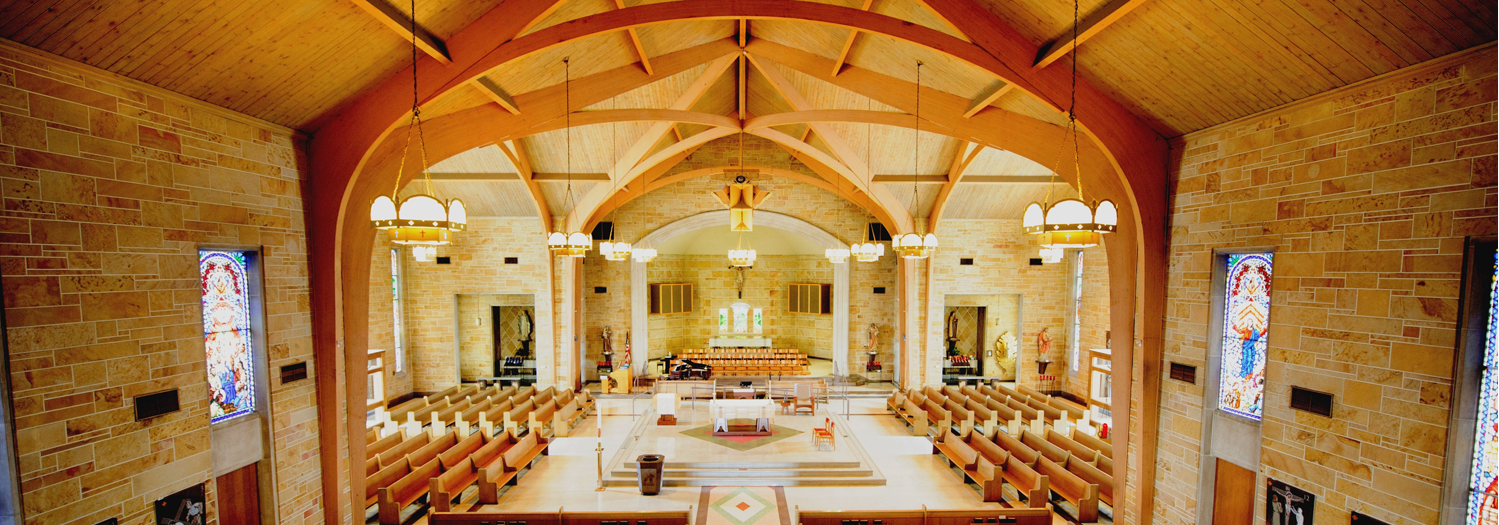Fr. Bob’s Homily
Fr. Bob’s Homily
June 15, 2025
My Brothers and Sisters,
The parish staff and I want to wish all fathers and those who take the place of fathers in the lives of young people a very happy and blessed Father’s Day.
Today we celebrate the Solemnity of the Most Holy Trinity, often called Trinity Sunday. When we talk about God’s revelation, we are talking, first of all, about God’s revelation of himself. However, we also believe that anything God reveals about himself also reveals us to ourselves.
The heart of Old Testament revelation is that God is one and personal. Through the prophet Isaiah, God says, “I am God, there is no other” [46:9]. Today’s reading from Proverbs personifies wisdom. In Christian belief, the Son of God is the Wisdom of God or, as St. John writes in his Gospel, the Logos or the Word of God. In today’s first reading, Wisdom says she was present at creation as God’s craftsman. John wrote, “All things came to be through him, and without him nothing came to be’” [Jn. 1:3]. If the heart of Old Testament revelation is that God is one and personal, the heart of New Testament revelation is that God is three persons in one God. In today’s Gospel, Jesus talks about the Father, himself as the Son, and the Holy Spirit.
When God reveals himself to us, he reveals us to ourselves. At the Last Supper, Jesus prayed for the unity of all believers and for their union with God: “‘I pray… that they may all be one, as you, Father, are in me and I in you, that they also may be in us…’” [Jn. 17:20-21]. Jesus died and rose to reconcile us with God and one another. Therefore, as followers of Jesus, we are all called to be healers, reconcilers, and bridge builders.
We all need to work to tear down the walls and barriers that separate us from others, especially from family members, to strengthen family ties, and to build unity within all the communities of which we are part. Practically, this means reaching out to immediate or extended family members from whom we are alienated, choosing to spend more quality time together as families, and strengthening the communities of which we are part by helping to identify the shared values within these communities. I would argue that one of the biggest problems in society today is the lack of a consensus of values. As a society, until we work to identify shared values, there is little hope of building real community.
Second, if God is Trinity and if Trinity is the greatest mystery of God, then relationships should have the most importance in our lives. If as persons we are living beings capable of relating consciously in knowledge and love, our greatest personal needs are to know and to be known, to love and to be loved. The greatest gift we can receive or give is the gift of true intimacy. This explains why there is so much unhappiness in our society, why even people who seem to have everything are not happy. Intimacy is the greatest need of the human spirit, intimacy with God and others.
As we celebrate the Most Holy Trinity and reflect on the implications of the Trinity for our lives, we must not focus too much on ourselves. God created the world and us because love by its nature is expansive. Therefore, our love must also be expansive. I would suggest the more we build community with others, the more we enjoy intimate relationships in our personal lives, the more empowered we will be to serve others, especially those whose needs are greatest. However, we must never forget that our capacity for love ultimately has its origin in God. As Paul wrote, “the love of God has been poured out into our hearts through the holy Spirit that has been given to us.”
My brothers and sisters, finally, if we look around us today, there is a lot of pessimism in our country right now. If we listen to a lot of commentators, it sounds as though the United States and the world are coming apart. In Proverbs, Wisdom, which represents the Son of God, suggests that humankind is God’s greatest delight. We must never forget this: we are God’s greatest delight.
